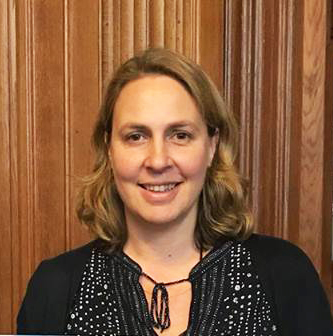What should be the priority in World Immunization Week?

By Cheryl Gowar
This is World Immunization Week. As the number of deaths worldwide from COVID-19 moves closer to 200,000 and it continues to upend all our lives the question on everyone’s mind is when will we have access to a vaccination that can halt this new virus?
However, before and beyond COVID-19, the World Health Organisation (WHO) estimated that nearly 20 million children worldwide are not protected against vaccine-preventable illnesses because of lack of access to immunisation programmes.
In the UK, of course, we are fortunate to have those vaccines available, and many illnesses have been eradicated or are circulating at very low levels. But NHS Digital figures show that decreasing take up of vaccinations over the last few years has meant that some illnesses are re-emerging that should no longer be a threat in the UK.
So what does all this, and WHO’s campaign #VaccinesWork for All, have to do with people living with HIV?
People living with HIV have an increased risk of infection and can be more significantly impacted by vaccine-preventable illnesses, meaning that they have different vaccination requirements than the general population. For example, vaccinations for hepatitis A, hepatitis B, Influenza, HPV and pneumococcus are all recommended for people living with HIV. However, a modified immune response means that some vaccines need to be given at different doses or more frequently to people living with HIV than is generally required. At the same time, advances in ART also mean that live vaccines, that have historically not been recommended, are now appropriate for some people living with HIV.
In 2015, BHIVA updated guidelines on the vaccine requirements for people living with HIV which have been widely endorsed, including by the Royal College of General Practitioners.[1] Even so an audit that same year showed that only a quarter of people living with HIV had received the pneumococcus vaccine. About 20% had received a flu vaccination in an HIV clinic, with a further 36% being advised to get it from their GP.[2] While some local initiatives are taking steps to improve the situation clinicians still tell us that vaccination coverage continues to be a problem for people living with HIV.
We know that people living with HIV tend to be very active in their own care. But might poor take up of vaccinations be down to people not knowing which they should be having or, perhaps, forgetting how serious these infections can be and how easily they can be prevented?
Or is uncertainty of responsibility between HIV clinics and GPs the problem? We know that communication and referral between HIV clinics and primary care is patchy, and that there is lack of clarity among commissioners concerning their roles and responsibilities. BHIVA guidelines are clear: “the HIV specialist should provide overall guidance on vaccine use and enlist the help of primary care physicians for vaccine administration”.
At NAT, we believe that good vaccination coverage for people living with HIV requires a model of long-term condition management that ensures care is integrated. That could look like an agreed template of required medical services, including all necessary vaccines, communicated from the HIV clinic to the GP, with follow-up, and with full involvement of people living with HIV. GPs would know what their patients need, and people living with HIV would know what vaccinations to ask for. We’ve been working with NHS England to make that happen.
We’ve also been working with the International Federation on Ageing (IFA) and a group of other UK advocacy organisations to promote vaccinations uptake in general. Our consensus statement will be launched on IFA's new website, www.vaccines4life.com, in May.
In World Immunization Week, of course our minds are all turned towards securing a vaccination for COVID-19. But perhaps another priority should be making sure that everyone knows what vaccinations they should be having and their importance in securing their health, alongside the clinical infrastructure to make necessary vaccinations accessible. NAT will continue to advocate this for all people living with HIV.
[1] British HIV Association guidelines on the use of vaccines in HIV-positive adults 2015. https://www.bhiva.org/vaccination-guidelines
[2] Molloy, A. et. al., 2017, ‘Routine monitoring and assessment of adults living with HIV: results of the British HIV Association (BHIVA) national audit 2015’ BMC Infect Dis. 2017; 17: 619.


